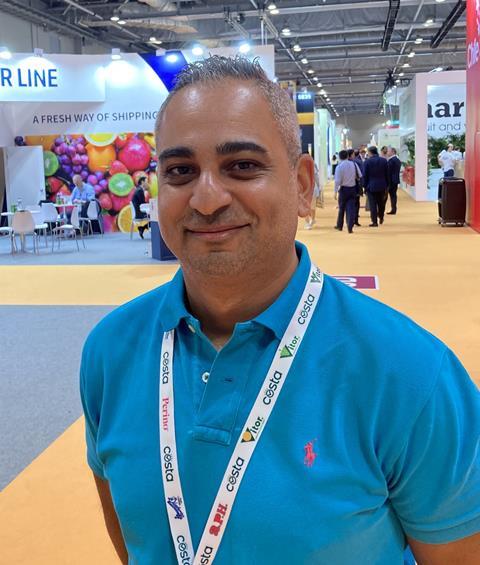Mina Eissa, formerly of Egyptian exporter Ghabbour Farms, founded RejoicePro Consulting in 2018 with the aim of helping growers in Egypt to export their fresh produce
Mina, how did your company RejoicePro Consulting come about, and what’s the aim of the business?
Mina Eissa: When we started in 2018, we had the dream of taking Egypt to the next level. We’ve seen the potential of Egyptian products. So we dedicated ourselves to turning quality farmers into quality exporters. Since then, we have had around 300-350 growers turn into exporters.

How do you see Egypt’s potential moving forward? What’s behind this momentum?
ME: Since Covid, when consumers realised the importance of vitamin C, citrus growers in Egypt have made much more money, and international demand has been very high. So growers have been looking more at export markets.
The government has also imposed strict regulations on how fruit firms should work, what pesticides can be used and in what quantity. So this is helping growers produce very good quality produce for international markets.
The culture is changing. The most difficult thing to change is people’s mentality. It takes time and effort. But when people see the results of using new technologies and adapting to international market applications – that they can save money and even make more money – they are more willing to adapt.
How does Egypt rate on the global market when it comes to competitiveness?
ME: Egypt is becoming very competitive in terms of pricing. Logistics-wise, Egypt is very close to Europe, so the transit time is good. At RejoicePro, we mainly work on strawberries, onions, mangoes, grapes and pomegranates. We have been able to export to many new countries such as Brazil and Vietnam, in addition to the Middle East and Africa.
In mangoes, Egypt is slightly less well known than for some other products. But that is changing. Volumes are increasing fast. Production doubled between 2021 and 2022, and we believe it will triple in 2024.
Why do you think Egyptian mangoes are a little less well known?
ME: We love mangoes in Egypt, and we love our particular varieties. These are expensive on the domestic market, so that’s a good market for producers. We’re starting to apply new post-harvest treatments and packing lines and packhouses in order for mangoes to be shipped by sea. We are known for shipping mangoes by air. Going by sea is going to increase the volumes from Egypt and make the price much more competitive to be able to compete with countries in Africa and Latin America.
Of course, it’s high risk for any shipper or carrier to use Red Sea routes at the moment. Alternatively, carriers have proposed other longer routes via the Cape of Good Hope, but they are not only longer, but also significantly more expensive.
Is sustainability growing in importance in Egypt?
ME: Sustainability is now a bigger issue in Egypt than ever before. People are much more aware of the necessity and the importance of water, for example. Waste management, water management, all these important issues have started to take place in Egypt in the last couple of years, and will go further in the coming years.



